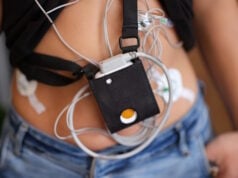
by Catharine Paddock PhD, Medical News Today, June 24, 2015- One of the drivers of alcohol and drug addiction is the powerful and enduring memories of the triggers – the people, places, sights and sounds that lead up to and surround episodes of substance use. Encounters with such powerful cues are recognized as primary reasons for relapse.
Now, a team that successfully stopped cocaine and alcohol addiction in rats using a drug already approved for the treatment of high blood pressure, suggests the compound – called isradipine – may prevent relapse by erasing unconscious memories of the triggers underlying addiction.
The researchers, from The University of Texas at Austin, report their findings in the journal Molecular Psychiatry.
Before the 1970s, many scientists believed addiction was a physical craving that could be overcome with willpower.
Now, more and more regard addiction as a brain rewiring problem, and that relapse during recovery can be triggered by encounters with environmental cues that have become strongly associated with the addictive substance.
Russian physiologist Ivan Pavlov showed that if you ring a bell every time you feed a dog, eventually the sound of the bell on its own – without the food – will cause the dog to salivate.
For the study, the team – led by Hitoshi Morikawa, associate professor of neuroscience – focused on brain circuits known to be involved in learning, memory and reward, which are thought to become rewired in addiction, forming powerful memories of drug-related cues.
They trained rats to associate either a black or white room with cocaine or alcohol as they became addicted to the substances.
After the animals had become addicted, the researchers offered them the choice of either entering the black or the white room. The rats nearly always chose the room they associated with the addictive substance.












